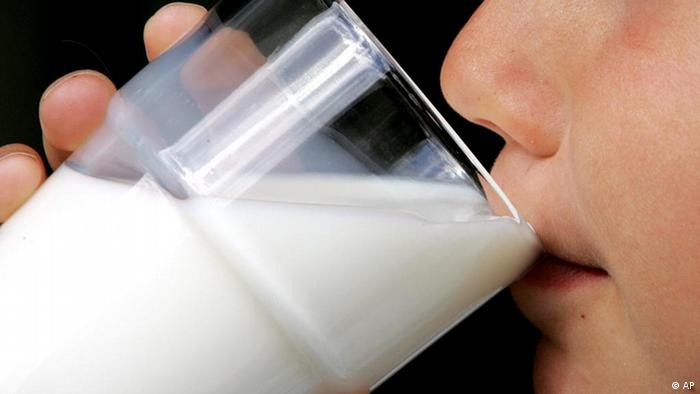
Cow’s milk may not just be a valuable source of nutrients. A recent
study in Australia also shows that milk could be used to develop an
affordable cream or a gel to protect against the HIV virus.
Researchers in Australia have found that cow’s milk can be used to produce antibodies that can protect against HIV infection.
Antibodies are proteins used by the immune system to recognize and neutralize viruses or bacteria.
Scientists at the University of Melbourne conducted their research on a small group of pregnant cows. They studied colostrum, also known as the first milk, which is produced by mammals and humans in late pregnancy.
Cows immune to HIV
Pregnant cows have the capacity to generate high capacities of antibodies in their first milk, according to Damian Purcell, associate professor and team leader of the research. Their second and third batches, however, have lower volumes.

The problem with HIV is that the virus has many different strains. "One individual has as many different genetic versions of HIV as there are people on the planet," he says. "Very few humans make antibodies that respond to and recognize all of these (strains), but the cows can do this."
Unlike humans or primates, cows cannot be infected with the HIV virus.
In a next step, the Australian researchers plan to collaborate with the biotechnology company Immuron to develop products for HIV prevention based on their findings.
Possible products
Creams or gels, for instance, could be applied to the vagina as a preventive measure. Another possibility is to impregnate a contraceptive ring, which could release antibody proteins out over a long period of time.
Cow milk could also lower the cost of producing such products.

More than 34 million people in the world have HIV. With their research on cow's milk, the Australian scientists could make a significant contribution discovering a vaccine to halt the spread of the virus and, ideally, wipe it out.
Antibodies are proteins used by the immune system to recognize and neutralize viruses or bacteria.
Scientists at the University of Melbourne conducted their research on a small group of pregnant cows. They studied colostrum, also known as the first milk, which is produced by mammals and humans in late pregnancy.
Cows immune to HIV
Pregnant cows have the capacity to generate high capacities of antibodies in their first milk, according to Damian Purcell, associate professor and team leader of the research. Their second and third batches, however, have lower volumes.

Cow's milk could provide a solution to combat HIV
"If the calf doesn't receive those first antibodies in the very first
colostrum, it is very susceptible to infection and usually dies,"
Purcell says.The problem with HIV is that the virus has many different strains. "One individual has as many different genetic versions of HIV as there are people on the planet," he says. "Very few humans make antibodies that respond to and recognize all of these (strains), but the cows can do this."
Unlike humans or primates, cows cannot be infected with the HIV virus.
In a next step, the Australian researchers plan to collaborate with the biotechnology company Immuron to develop products for HIV prevention based on their findings.
Possible products
Creams or gels, for instance, could be applied to the vagina as a preventive measure. Another possibility is to impregnate a contraceptive ring, which could release antibody proteins out over a long period of time.
Cow milk could also lower the cost of producing such products.

Marit Kramski (left) Damian Purcell (center) and Robert Center at the University of Melbourne
“Using the milk antibodies from these cows, you can produce large
amounts of antibodies at a really low cost," says Marit Kramski, a
member of Purcell’s team. "We're hoping that in the end we have a
product which doesn't cost a lot.”More than 34 million people in the world have HIV. With their research on cow's milk, the Australian scientists could make a significant contribution discovering a vaccine to halt the spread of the virus and, ideally, wipe it out.
No comments:
Post a Comment